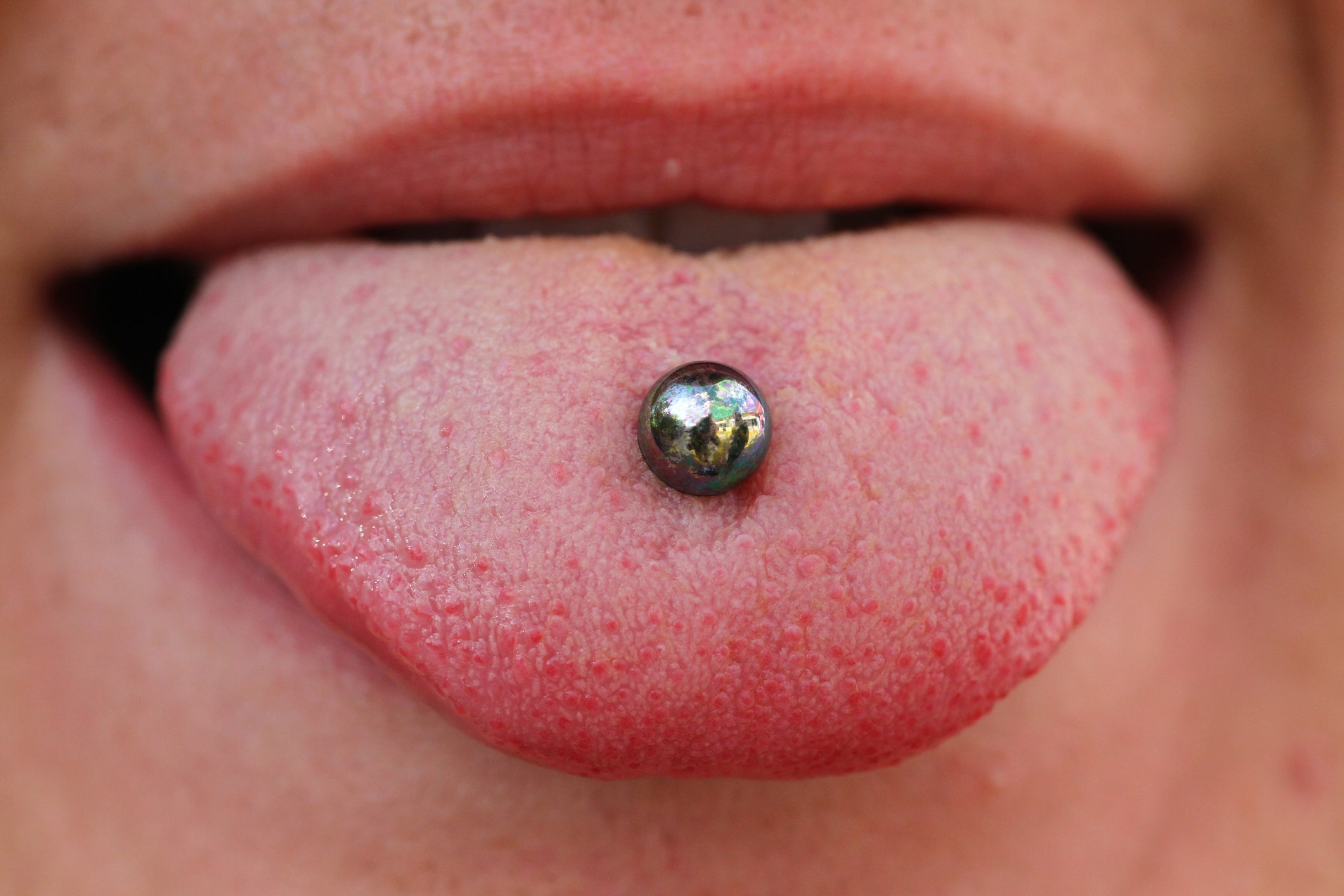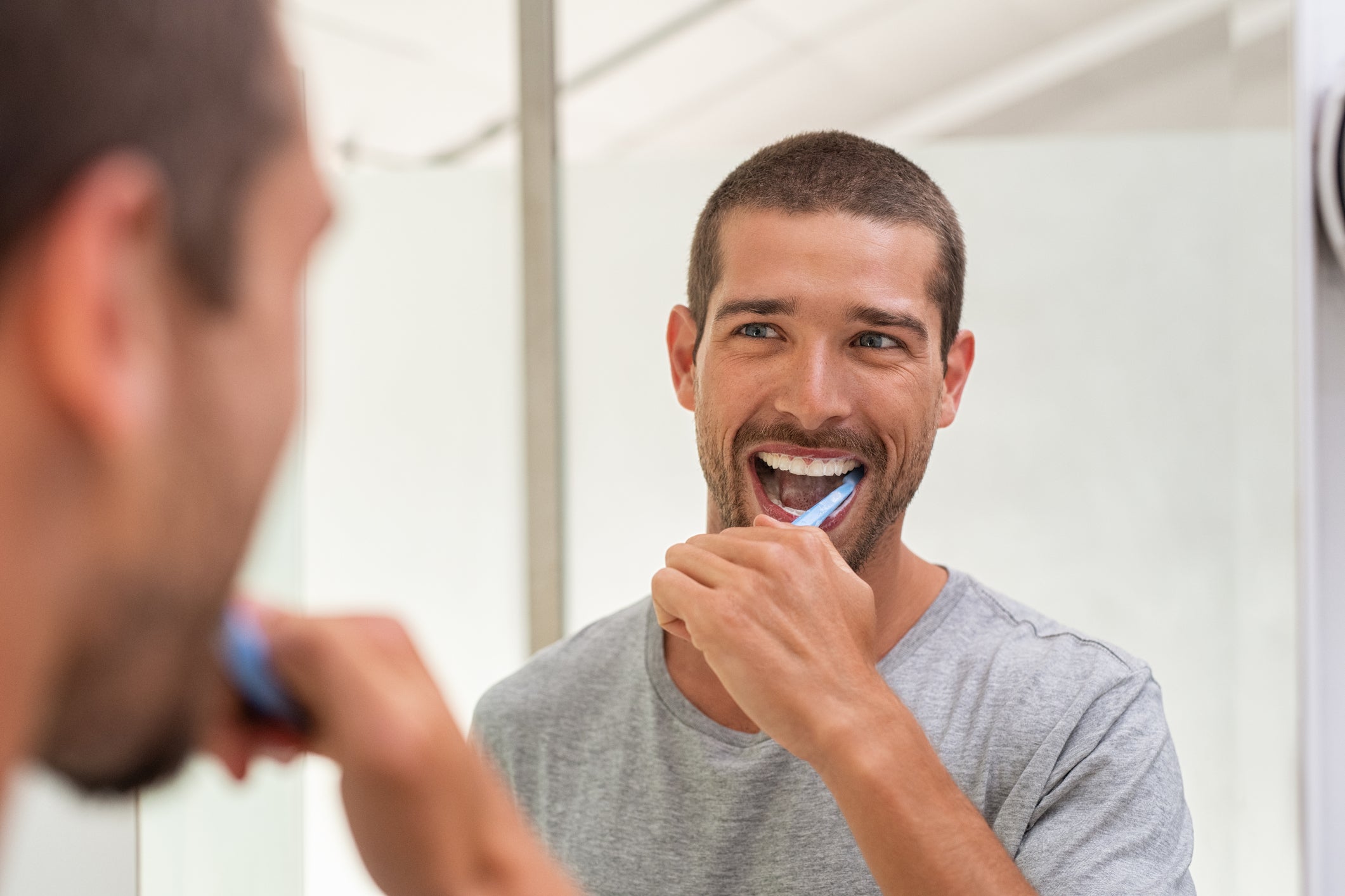-
Tooth Pain Caused by Allergies

If you’ve got a toothache, you may think you have a cavity, or maybe you’ve been clenching your jaw. What you may not consider, though, is that your throbbing tooth could be related to your allergies. While most people are familiar with the common symptoms of allergies, like a runny nose or itchy eyes, fewer know that sinus inflammation from seasonal allergies can result in toothaches. What is it about allergies that can cause your tooth to hurt? More to the point, what can you do to fix the problem?
- The symptoms of allergy-related toothaches are typically felt in the upper premolars and molars. They feel a lot like a toothache that’s the result of infection, with hypersensitivity to cold or heat, pain when chewing, and a painful throbbing sensation.
- Why does this happen? When the sinus cavity becomes inflamed because of allergies, the nerves surrounding it can be affected. This causes pain to the surrounding teeth that can appear suddenly, without an easily identifiable cause. The reason the upper teeth are the primary ones affected is because of their proximity to the sinus cavities.
- How do you know your toothache is the result of allergies? You’ll probably have other allergy symptoms to let you know you’re having a reaction to something. Still, it’s wise to have a dental exam, to rule out any other cause of toothaches and confirm that allergies are the cause of your pain.
- You can take steps to prevent allergy-related toothaches. The best way to do this is to treat the congestion that’s causing the pain. Try combining an antihistamine like Claritin, Allegra, or Benadryl, a decongestant like Sudafed or Claritin-D, and a topical nasal spray like Afrin. Of course, before you start any kind of medication, even over the counter medicines, consult your doctor to make sure these are a good choice for you.
- Your dentist can help. If you’ve tried addressing the issue of allergies and the pain persists, it’s time to seek dental treatment. A checkup of your teeth and gums can help determine that there’s nothing more serious going on, like a cavity, gingivitis, or a tooth infection. Your dentist can also address the problem of oral dryness, which can accompany allergies and be exacerbated by allergy medications. It’s important to deal with this issue because a lack of saliva increases your risk of gingivitis, cavities, and bad breath.
If you’re looking for the perfect dentist, choose the practice that was voted best dentist in NYC! At Park 56 Dental Group, we offer pediatric, prosthodontics, endodontics, oral surgery, Invisalign®, emergency, and sedation dentistry, all at the highest level of treatment. We serve the Midtown, Central Park, Upper East Side, Park Avenue, and all surrounding Manhattan and New York areas, with a patient-centered practice that has hours to fit your schedule. Schedule your complimentary consultation today by contacting us online or calling us at (212) 826-2322.
-
How Oral Piercings Can Affect Your Dental Health

Piercings are growing ever more popular, and many people choose to express their individuality with an oral piercing. Unfortunately, cheek, tongue, and lip piercings often come with complications that can have an impact on your dental health. Before you get an oral piercing, make sure you know the risks.
Any piercing can cause an allergic reaction. You might experience pain and swelling after the procedure, or develop a skin infection that causes redness and pain or even scarring. When jewelry is accidentally ripped out, it can cause tearing and trauma, and piercings come with a risk of bloodborne diseases like Hepatitis B, Hepatitis C, and HIV. While those complications apply to all piercings, though, there are some problems that specifically occur with oral piercings. According to the American Dental Association, complications that can result from oral piercings include:
- Chipped or cracked teeth or a swollen tongue: The piercing can bump against your teeth while you talk or eat. You might even find that you sometimes bite it. When this happens, the piercing can injure your gums or crack or scratch your teeth. Your teeth may become sensitive, or you might damage your fillings. In addition, jewelry in your mouth can accumulate plaque, leading to tooth decay and cavities.
- Halitosis: It’s hard to properly clean your mouth when there’s jewelry covering part of your oral tissue. This leads to plaque bacteria and food debris building up in your mouth and causing bad breath.
- Bacterial infections: Your mouth is already a welcoming place for bacteria, because it’s so moist. Add in an incision and jewelry, and the bacteria trapped around your piercing can lead to infection, with symptoms of redness, swelling, pain, and a foul odor.
- Increased saliva: Usually, you want a good flow of saliva to wash out your mouth and prevent tooth decay. However, the excessive saliva flow that can be caused by an oral piercing can lead to the development of tartar, calcified plaque. Tartar hardens on teeth and under gums, and removing it requires a professional dental cleaning.
- Gum issues: Metal rubbing against the gums when you’re chewing, speaking, or just moving the piercing can cause gums to recede, which sometimes requires surgical correction. Piercings also raise the risk of gum disease, which can negatively impact your health and lead to tooth loss.
- Problems with dental care: Jewelry in your mouth makes it harder for your dental team to care for your oral health. It can even interfere with x rays and other diagnostic tools.
- Tissue trauma: Sometimes piercing jewelry becomes infected and must be surgically removed. You can also form scar tissue that may become large and require surgical removal.
- Changes in speech: Oral piercings can cause you to speak differently and impede your normal chewing.
- Obstructed airway: If the piercing becomes infected, you may experience breathing problems. Worse, if a piercing dislodges when you’re sleeping, speaking, or chewing, it can become lodged in the back of the throat, causing choking or airway obstruction.
- Nerve damage: After a piercing, your tongue may feel numb because of temporary nerve damage. Sometimes, though, this damage becomes permanent. This can affect your sense of taste and the movement of your mouth.
You might not realize it, but these complications are surprisingly common. While they don’t happen to everyone with oral piercings, they happen frequently enough and cause enough serious damage to be of concern. You can reduce your risk of complications, however, by being vigilant about caring for your mouth. Brush twice a day, floss, and use an alcohol-free mouthwash. Don’t play with your jewelry, stay vigilant for signs of infection, and periodically check to make sure it’s tightly secured.
If you’re looking for the perfect dentist, choose the practice that was voted best dentist in NYC! At Park 56 Dental Group, we offer pediatric, prosthodontics, endodontics, oral surgery, Invisalign®, emergency, and sedation dentistry, all at the highest level of treatment. We serve the Midtown, Central Park, Upper East Side, Park Avenue, and all surrounding Manhattan and New York areas, with a patient-centered practice that has hours to fit your schedule. Schedule your complimentary consultation today by contacting us online or calling us at (212) 826-2322.
-
How to Avoid Wearing Dentures in the Future

Growing older means facing a variety of challenges. Some of the difficulties that come along with aging are inevitable, but wearing dentures is not one of those things. There are steps you can take to be proactive with your dental care so that you won’t have to wear dentures in the future.
- First, brush your teeth. It may seem to simple and obvious to need to be stated, but many people to not properly clean their teeth. Did you know that over 20 million people in the United States are missing all of their natural teeth? That’s a lot of people who need dentures. Some of that tooth loss stems from poor brushing habits, because one in four adults in this country doesn’t brush twice daily. Lack of brushing leads to periodontal disease, which the National Institute of Dental and Craniofacial Research cites as the most common cause of tooth loss among adults. Brush your teeth twice a day, with a good toothbrush and fluoride toothpaste certified by the ADA.
- While you’re at it, floss! Flossing is important, because when tiny food particles are allowed to remain between your gums and teeth, they harden and turn into tartar. Tartar is often the cause of gingivitis which leads to periodontitis, which leads to lost teeth. Lost teeth, of course, lead to dentures. Floss at least once a day and consider augmenting your brushing and flossing routine by rinsing with a dentist-approved mouthwash.
- Schedule regular dental checkups. It is recommended that adults visit the dentist for a cleaning and exam every six months. Unfortunately, only about half of adults in the U.S. actually do that. These appointments are very important, though, for many reasons. When you have regular cleanings, the dentist and hygienist can help you keep tooth decay and gum disease at bay. Further, when your dentist examines your teeth every six months, there’s a better chance of catching any problems when they’re small, before they grow into major issues.
Of course, if you do end up needing dentures, it’s not the end of the world. Today’s dentures are much better than the dentures of generations past, and if you’re replacing missing teeth, you may even be able to get implants as well, provided you don’t have bone deterioration. If you have pain, bleeding gums, you’re losing your teeth, or you are having trouble eating, don’t suffer in silence. Instead, find a good dentist who can help you determine your best options.
If you’re looking for the perfect dentist, choose the practice that was voted best dentist in NYC! At Park 56 Dental Group, we offer pediatric, prosthodontics, endodontics, oral surgery, Invisalign®, emergency, and sedation dentistry, all at the highest level of treatment. We serve the Midtown, Central Park, Upper East Side, Park Avenue, and all surrounding Manhattan and New York areas, with a patient-centered practice that has hours to fit your schedule. Schedule your complimentary consultation today by contacting us online or calling us at (212) 826-2322.
-
How to Care for Sensitive Teeth

Do you experience pain after consuming hot or cold foods and beverages? The Academy of General Dentistry estimates that around 40 million people in the United States have some degree of tooth sensitivity. What causes sensitive teeth? And how can you manage it? Your dentist can offer some solutions, but there are also things you can do at home to help.
- Switch your toothpaste. Over-the-counter desensitizing toothpastes are made specifically to treat tooth sensitivity. These toothpastes have compounds that block the pain signals from your nerve endings to your brain and should decrease your sensitivity after a few uses.
- Brush more gently. Cleaning your teeth too vigorously can wear off your enamel, increasing sensitivity. Additionally, using a stiff-bristled brush can make tooth sensitivity worse by causing microscopic holes in your enamel and worsening gum recession. Use a soft bristled toothbrush and brush gently, holding the brush at a 45 degree angle to the tooth.
- Try some home remedies. A saltwater rinse can reduce inflammation, and hydrogen peroxide can act as an antiseptic and disinfectant to heal gums. Rinsing with honey and warm water can help your mouth heal, as honey is a natural antibacterial agent. Some people swear by oil pulling, swishing coconut oil around the mouth. Others use turmeric for pain and inflammation, massaging a paste made of turmeric into their gums. Cloves are a natural pain reliever with anti-inflammatory and germicidal properties. Using green tea as a mouthwash twice daily can strengthen teeth and reduce inflammation, and the capsaicin in hot peppers has analgesic properties when used as a topical gel or mouth rinse. Vanilla extract, applied to the gums with a cotton ball, can alleviate pain.
- Mind your diet. While certain foods can help sensitive teeth, others can make the problem worse. Acidic foods like soda and coffee, as well as high-sugar foods and processed carbs, can attack enamel. Even some healthy foods, like citrus fruits and flavored yogurt, can cause enamel erosion. Snack on tooth-strengthening foods like fiber-rich fruits and vegetables, cheese, milk, and plain yogurt. Drinking green or black tea is good for your teeth, and chewing sugarless gum can stimulate saliva production, helping to protect enamel. If you’re going to drink something acidic, use a straw so that less liquid makes contact with your teeth. Note: if you consume something bad for your enamel, don’t rush to brush. Swish with water and wait an hour before brushing, to avoid further damaging the enamel.
- Talk to your dentist. If sensitive teeth are troubling you, your dentist can find the cause. You may be grinding or clenching your teeth and need to wear a mouth guard or splint. Whitening treatments you’re receiving may be too harsh. A damaged tooth or gum disease can cause tooth sensitivity, so seeing your dentist can help address these issues. The dentist can also offer solutions like dental varnishes and sealants or even a root canal to fix the problem.
If you’re looking for the perfect dentist, choose the practice that was voted best dentist in NYC! At Park 56 Dental Group, we offer pediatric, prosthodontics, endodontics, oral surgery, Invisalign®, emergency, and sedation dentistry, all at the highest level of treatment. We serve the Midtown, Central Park, Upper East Side, Park Avenue, and all surrounding Manhattan and New York areas, with a patient-centered practice that has hours to fit your schedule. Schedule your complimentary consultation today by contacting us online or calling us at (212) 826-2322.
RECENT POSTS
categories
- Uncategorized
- Cosmetic Dentistry
- Veneers
- Healthier Teeth
- Teeth Whitening
- Dental Health
- Video
- Dental Emergencies
- Invisalign
- Dental Implants
- Root Canal
- Sedation Dentistry
- Infographic
- Dental Crowns and Bridges
- Dental Anxiety
- Gum Disease
- COVID-19
- Bad Breath
- New York Dentist
- Cut out sugar
- General Dentistry
- Oral Health
- Oral Cancer
- Dry Mouth
- Gum Health
- Toothache
- Dental Sealants
- Cavities
